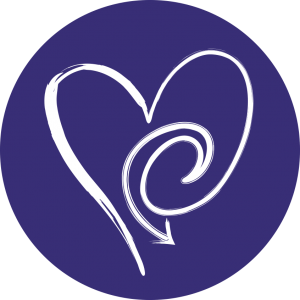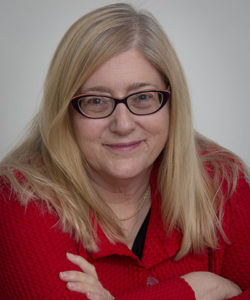Collaborative Women – The Path is Easier with a Friend
Joan: You and I met a quarter of a century ago, working for a public relations company called CIIC in Nyack, north of New York City. We were freelancers working remotely before that was a thing, so we must have met at a company social gathering. I wrote lots of press releases back then, often for destination clients. I got to travel to places like Acapulco, and Manzanillo, Mexico. What a dream job!
Faye: I never got the travel perks, but I wrote my share of press releases. I started at CIIC with a background in journalism. I’d also worked in media relations for environmental organizations, and in business management for a music company. My contract work for CIIC was my attempt to get back to writing as a career. At the time, my creative work was on the back burner. I don’t think your creative work was ever on the back burner.
Joan: My first three novels published while I was at CIIC. My publisher back then was The Permanent Press. Except for book-cover decisions, I had a front row seat to how publishing worked, from editing to layout to production. And since I already had a handle on PR from working at CIIC, I came up with the wild idea to start my own indie publishing company. I posted a few notices in literary magazines (this was 1998; there weren’t online magazines) to say GreyCore Press was open for submissions. Before I knew it, I had a tower of submissions (back then, all by snail mail). I worked night and day to keep up with them plus my paying work. I was drowning. I needed help from someone with super high energy, and maybe a bit of the crazy.
Faye: Your independent press took off, and you published some award-winning titles. I got involved when my friend Paul Martin wrote a memoir about losing a leg in an accident and building a triumphant life as a Paralympic cyclist. You agreed to publish it! One Man’s Leg was the first book I edited and our first creative collaboration. That experience started my learning about the publishing world and my return to the creative writing life.
The real story in all this is the way women can boost each other when they remain friends and colleagues. We continued to work together as freelancers after CIIC, throwing each other work and helping each other get jobs. We met in person maybe three times, yet we stayed in touch when I moved to Colorado, back to Nyack, then Boston. While I segued between full-time marketing writing jobs and freelancing, you were freelancing and publishing more novels. When I went back to school for my MFA in 2010, you encouraged me and showed me the ropes. I had no idea how to become a published writer. When I started submitting to literary journals, I received nothing but rejections. Without fail, if I wrote to tell you I was a terrible writer, you wrote back to say I was a great writer and to keep going. Meanwhile, how many books had you published by 2010?
Joan: I had four books published before I started GreyCore. I didn’t write a single thing during the time I was publishing—because I was still freelancing to feed my publishing habit. I didn’t have a lick of time to myself.
In 2003, when I had five or six GreyCore Press books under my belt, my distributor went out of business owing me and their other clients quite a lot of money. I found a new distributor, but my small company never got back on its feet and I had to let it go. What a life lesson! GreyCore Press became GreyCore Literary Services, and back I went to freelancing and my own projects.
Years passed. At times we worked for the same clients and were in touch a lot. But even when we went in different directions, we regularly had water-cooler conversations via email. Sometimes I felt we were sitting in the same office, having a laugh or sharing a hardship while we worked on our respective assignments. And then one day I got another wild and crazy idea, to put together an anthology on the subject of touch.
Faye: By that time, my own life as an author had taken off. I had published my memoir-in-essays, Message From a Blue Jay, with an independent press, as well as the three children’s books in the Stray Cat Stories series with a hybrid press (so that I could choose my illustrator and donate part of the proceeds). I also had a microfiction collection in the works called Soul to Soul: Tiny Stories of Hope and Resilience (you helped by reading the manuscript and making suggestions). When you contacted me about an anthology of essays and poems on the concept of touch at a time of global pandemic, when people were warned to avoid it, I thought, “That sounds interesting! Sure!” You had an agent interested, and I’d never worked with an agent…except you, who had agented my memoir. Really, Joan, you have been so instrumental in my writing journey!
Joan: Yes, our wonderful agent, Liz Trupin-Pulli, loved our project. If not for her, we might have quit before we started. Our writing careers and your MFA connections resulted in us knowing many great writers. And we invited others to submit: a neuroscientist, a trans woman, a massage therapist, energy healers, the mom of a child with OCD… whoever had something important to say about the concept of touch. We had so much stuff to edit. It was wild. Back and forth manuscripts went, with big changes, little changes, tweaks. Sometimes one of us felt overwhelmed, but we kept each other going. Now and then we disagreed, but we handled every challenge knowing friendship came first. When we had a sizeable collection of really good contributions and the promise of more, Liz sent out queries. But as often happens in today’s publishing world, we had no hits. The answer was often the same: Although the project was fascinating, it didn’t fit the publisher’s list. Almost a year passed. We came to agree that ours was probably better served by a university press. With Liz’s blessing, we set out on our own.
We didn’t know anyone at university presses! We found ourselves on a dark road without a flashlight. We asked our contributors for suggestions. I sent out queries, but no hits. And researching to find the right editor to contact at each press was taking too much time. Except for my sense of obligation to the contributors, I would have quit. But you urged me on, sending leads when I insisted there were none, reassuring me when I was whining. And not wanting to disappoint you of all people, I sent out one more query, and one more. And then one day I got the email we had been hoping for. The University of Georgia Press loved our project and wanted to pursue it. We started planning the margaritas we would drink to celebrate, you in Boston and me, by then, in Albuquerque.
Faye: I’m still hoping we’ll drink margaritas in person someday. But even after the book was accepted, we had months of work ahead. University presses require numerous steps, including outside readers and revisions, before the final word that your book really will be published. We spent three years on this book, but we got there. I’m so proud of The Art of Touch: A Collection of Prose and Poetry from the Pandemic and Beyond. And I’m honored to have contributed an essay myself. I hope many readers will find the book thought-provoking and moving.
Meanwhile, Soul to Soul found a home! My collection will be published by Huntsville Independent Press on December 1. And you just released your latest novel, Under the Blue Moon, with Five Directions Press.
So we’ve come full circle. Twenty-five years ago, we met in New York while writing press releases. It’s been a long and winding road. But now we’re publishing our own work, and we’re co-editors of a ground-breaking literary anthology.
Our writing styles are different. Our processes are different. Our backgrounds in the literary world are different. We live thousands of miles apart. Yet these differences strengthen our friendship and help us boost each other’s writing. I hope our story encourages other women to work together to reach their separate and mutual goals.



2 Responses
Such a beautiful process and history together as writers (and women) supporting one another. I am sure that it’s nice after twenty-five years to look back, and see all of the accomplishments! All the power to both of you!
Women, no matter what world crisis rears its head, have always been resilient and supportive of each other. Thank you for this post.